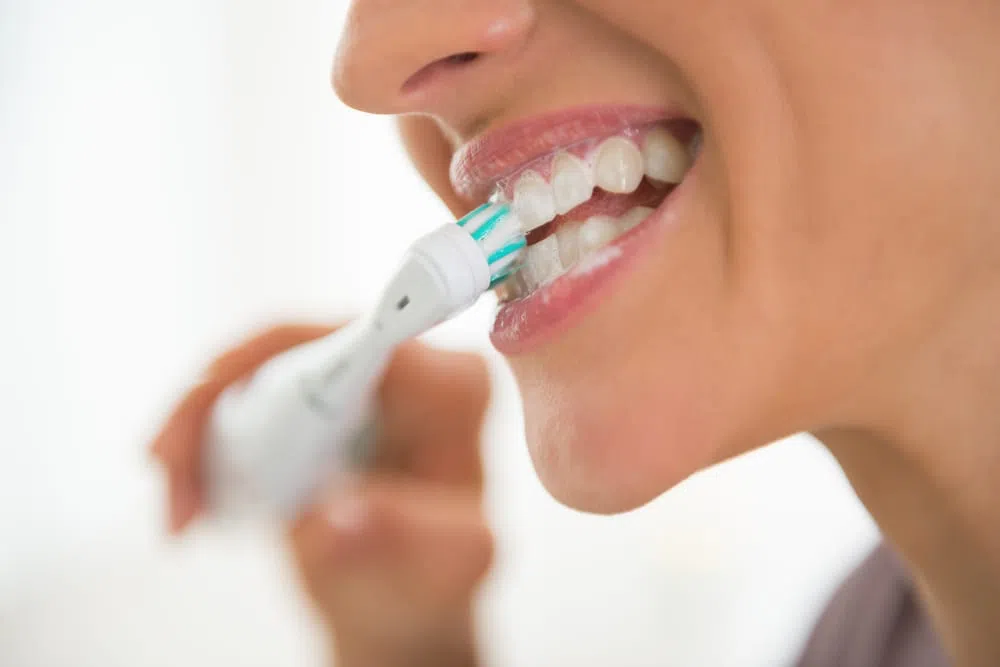San Jose, CA
Essential Gum Care Tips for Seniors for This Gum Care Awareness Month


Gum Care Awareness Month reminds us of the importance of oral health, especially for seniors. As we age, our bodies undergo various changes, and oral health is no exception. Seniors face unique challenges like gum recession, dry mouth, and increased risk of gum disease, making gum care especially important in older adults.
Raising awareness about gum care can prevent serious problems like periodontitis, tooth loss, and infections. Healthy gums contribute to a better quality of life by reducing the risk of pain and discomfort.
This Gum Care Awareness Month is a perfect time to highlight the need for proper gum care, especially for seniors. By focusing on prevention, education, and regular care, we can help older adults maintain healthy gums and overall oral health for years to come.
Understanding the Importance of Gum Health for Seniors
Gums play a crucial role in supporting teeth and maintaining overall oral health. Healthy gums act as a barrier, protecting teeth and the underlying bone. In seniors, gum health can decline due to aging, medication side effects, and long-term oral habits.
Common gum problems seniors face include gum recession, gingivitis, and periodontitis. Gum recession, where gums pull away from the teeth, exposes the tooth roots, making them more vulnerable to decay.
Gingivitis, the early stage of gum disease, causes inflammation and bleeding of the gums. If left untreated, it can progress to periodontitis, a more severe form of gum disease leading to tooth loss.
Gum health impacts more than just the mouth. Research has linked poor gum health to several systemic diseases, including diabetes and heart disease.
This connection is critical for seniors. Unhealthy gums can worsen conditions, making gum care essential for overall health. Seniors with good gum health can enjoy better oral function, comfort, and improved general well-being.
Key Gum Care Challenges Faced by Seniors
Aging changes oral health, making gum care more challenging for seniors. One of the most significant issues is thinning gum tissue. As we age, gums naturally lose their thickness and resilience. This thinning makes the gums more prone to injury and infection, leading to gum recession or gingivitis.
Another common challenge for seniors is dry mouth, medically known as xerostomia. Dry mouth often results from medications that seniors commonly take, such as those for high blood pressure or anxiety.
Without enough saliva to cleanse the mouth, bacteria can accumulate, leading to gum disease and tooth decay. Seniors with dry mouth must take extra steps to keep their gums healthy.
In addition to these physical changes, many seniors have reduced dexterity, which can make oral hygiene routines harder to follow. Arthritis or other mobility issues can affect their ability to brush and floss effectively, allowing plaque to build up around the gums. As plaque accumulates, it hardens into tartar, further contributing to gum disease.
Finally, gum diseases like gingivitis and periodontitis are highly prevalent among older adults. Studies show that nearly 70% of adults aged 65 and older have some form of gum disease. This high prevalence underscores the importance of preventive care and routine dental visits. Left untreated, gum disease can lead to tooth loss, which affects chewing, nutrition, and overall health.
Seniors face several hurdles when it comes to maintaining gum health, but with the right approach, they can overcome these challenges. By using adaptive tools and following professional recommendations, older adults can keep their gums healthy and strong even as they age.
Essential Gum Care Tips for Seniors
Here are some essential gum care tips for seniors to maintain healthy gums:
a) Maintain a Consistent Brushing Routine
Brushing twice a day with a soft-bristle toothbrush is crucial for gum health. Use a fluoride toothpaste that strengthens enamel and helps prevent decay. Seniors with sensitive gums can opt for toothpaste designed specifically for their needs.
If arthritis or reduced mobility makes brushing difficult, consider using an electric toothbrush. These toothbrushes require less effort and provide more effective cleaning, helping seniors keep their gums healthy.
b) Don’t Forget to Floss
Flossing removes plaque and food particles from between the teeth, where brushing cannot reach. For seniors who find traditional floss difficult to use, alternatives like water flossers or interdental brushes are great options. These tools are easier to handle and just as effective, ensuring that seniors can maintain clean gums even with limited dexterity.
c) Stay Hydrated and Combat Dry Mouth
Dry mouth can accelerate gum disease by creating a favorable environment for bacteria. Seniors should drink plenty of water to keep their mouths moist.
Chewing sugar-free gum can also stimulate saliva production. It is important to avoid alcohol-based mouthwashes, which can worsen dry mouth. Instead, choose mouthwashes designed to hydrate the mouth and protect the gums.
d) Regular Dental Check-ups
Regular dental visits are essential for seniors to maintain healthy gums. Dentists can perform professional cleanings that remove tartar and prevent gum disease.
Seniors should schedule dental exams at least twice a year. These visits allow dentists to catch gum problems early before they worsen. During their visits, seniors should also ask their dentist about periodontal screenings and oral cancer screenings.
e) Consider Diet for Gum Health
A balanced diet is vital for maintaining healthy gums. Foods rich in vitamin C, such as oranges and strawberries, promote gum health by supporting tissue repair. Calcium-rich foods like milk and cheese strengthen the teeth and bones that support gums.
Crunchy fruits and vegetables, like apples and carrots, can naturally clean the teeth and stimulate the gums. Avoid sugary and acidic foods, as they can erode the enamel and harm gums over time.
f) Address Denture and Implant Care
For seniors with dentures or dental implants, proper care is essential to avoid gum irritation. Clean dentures daily to remove bacteria and prevent gum inflammation. Ensure that dentures fit properly to prevent them from rubbing against the gums.
For those with implants, it is important to keep the gums around the implant clean to avoid infection. Regular check-ups with a dentist can help ensure that implants and dentures remain in good condition while supporting gum health.
Warning Signs of Gum Disease in Seniors
Seniors should watch out for the following warning signs of gum disease:
- Red, swollen, or bleeding gums: These are often the first signs of gingivitis. If gums bleed when brushing or flossing, it is time to see a dentist.
- Persistent bad breath: Bad breath that does not go away could indicate gum disease. This occurs when bacteria accumulate in the mouth due to poor gum health.
- Loose teeth or receding gums: If teeth start to feel loose or gums appear to be pulling away from the teeth, it could signal advanced gum disease like periodontitis. This requires immediate dental attention.
- What to do if these signs appear?: If any of these symptoms arise, seniors should contact their dentist immediately. Early intervention can prevent the progression of gum disease and protect both the gums and teeth.
Prioritizing gum care is essential for seniors, especially during Gum Care Awareness Month. By maintaining a consistent oral hygiene routine, staying hydrated, and visiting the dentist regularly, seniors can prevent gum disease and enjoy a healthier life. Seniors, their caregivers, and loved ones should take this opportunity to focus on oral health.
Schedule a dental check-up and share these tips with elderly family members or friends to ensure they keep their gums healthy.




